On 25 February, mdw conducting students participated in a master class on Beethoven’s 5th Symphony at the Vienna Konzerthaus given by Andrés Orozco-Estrada together with the Vienna Symphony.
For virtually anyone who hopes to pursue a conducting career, attending a master class given by a famous conductor is a highlight. And for all nine of the mdw students who took part in this one, the privilege of working together with a star and one of the world’s best orchestras at a wonderful venue while still a student was a big deal indeed. It was made possible by the Vienna Symphony Orchestra’s music director, mdw alumnus Andrés Orozco-Estrada.
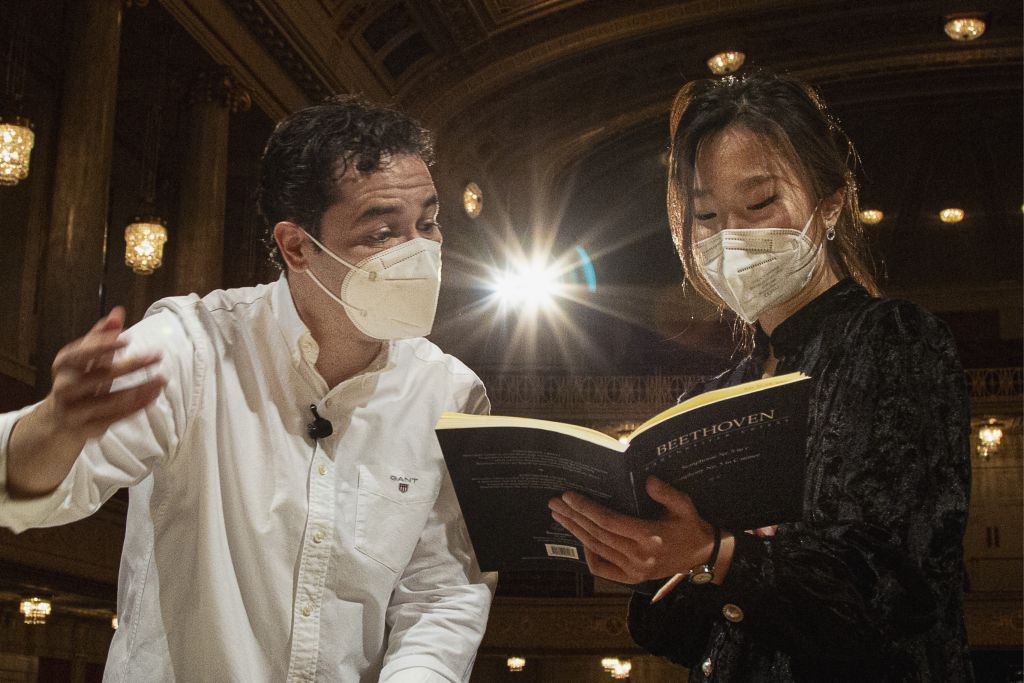
In these special times, with the COVID crisis still ongoing, it proved possible to quickly and easily realise something that would normally has to be planned well in advance so as to fit into head conductors’ and orchestras’ packed calendars. What’s more, Maestro Orozco-Estrada’s spontaneous idea and the immediate positive responses that came from the orchestra, the Konzerthausgesellschaft, and the mdw enabled everything to be finalised in a matter of hours. “In principle, I’ve always considered making something like this possible to be very important. But the wonderful thing here was that I was able to simply talk with a few people and obtain everyone’s ‘yes’ within a single day,” explains the conductor. “For that, I’m grateful to all of them.” Within a very short time period, the organisational pros from the Konzerthaus and the mdw worked out not only the event’s structure but also its safety concept, and everything (including antigen testing and catering) ultimately went according to plan.
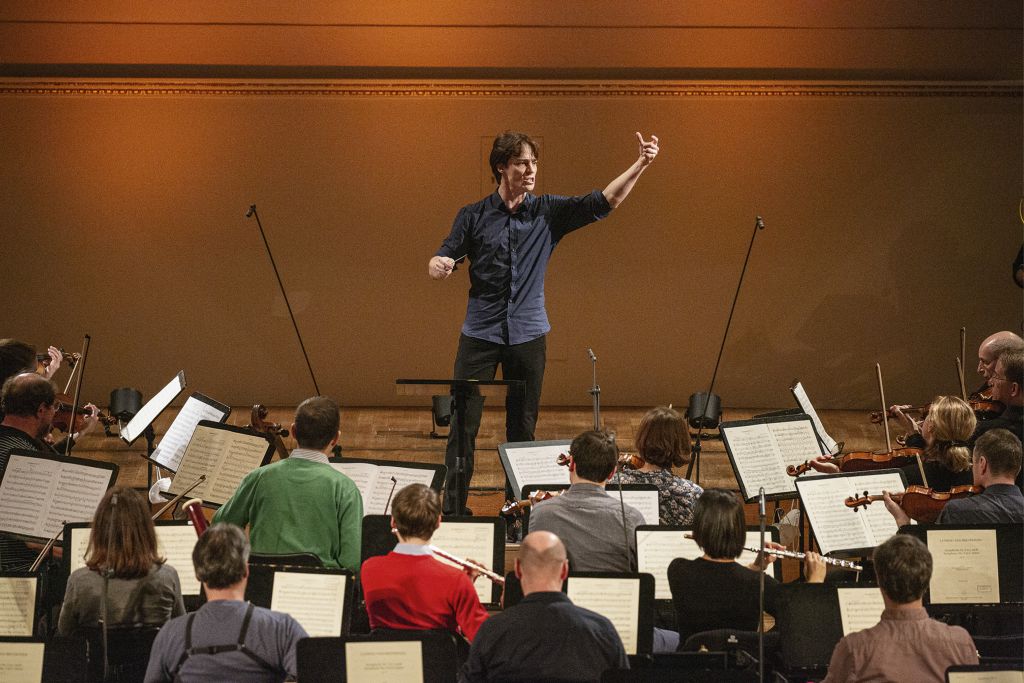
The entire time, one could sense everyone’s commitment—commitment that enabled the students to obtain maximum benefit from every part of this special and challenging day. Planning down to the last detail made it possible for all nine aspiring conductors to join the maestro in approaching the challenge of more or less assuredly leading an experienced professional orchestra through the demanding score of the first movement of Ludwig van Beethoven’s 5th Symphony. Orozco-Estrada explains his choice of this piece as follows: “The first movement of Beethoven’s 5th Symphony, above all the first few measures, is one of the most ornery and difficult scores you’ll ever see. But it’s something we all need to master and have in our heads. It’s also not excessively long, which made it perfect for this master class with several participating students. It gave everyone the chance to realise where they stand right now—in terms of cue-giving, general precision, their musical understanding of the score, and their imaginativeness.”
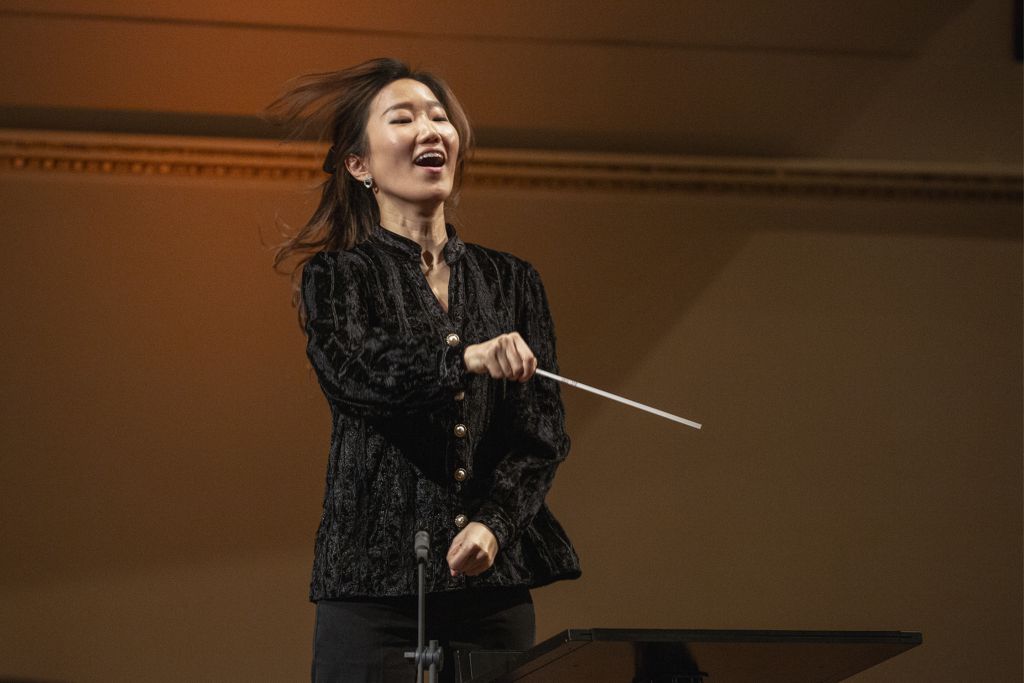
Even though this composition is among the best-known and most frequently played music out there, their day of work resulted in nine different approaches and interpretations that the students rehearsed together with the orchestra within an extremely short period of time. The Vienna Symphony’s members took pains to adhere quite precisely to the young conductors’ instructions. On this, solo trumpeter Matthias Kernstock says the following: “For us orchestral musicians, it was important for us to try to understand and realise the conductors’ indications as precisely as possible—rather than countering or correcting them, as if we were in autoplay mode.” As a former mdw student himself, Kernstock has an easy time explaining the value of such a master class: “For the students, it was a great opportunity to work together with a professional orchestra that’s as experienced as the Vienna Symphony. I’m sure it provided them with lots of good takeaways. Back when I was a student, I benefited greatly from these kinds of valuable experiences in master classes taught by eminent figures.”
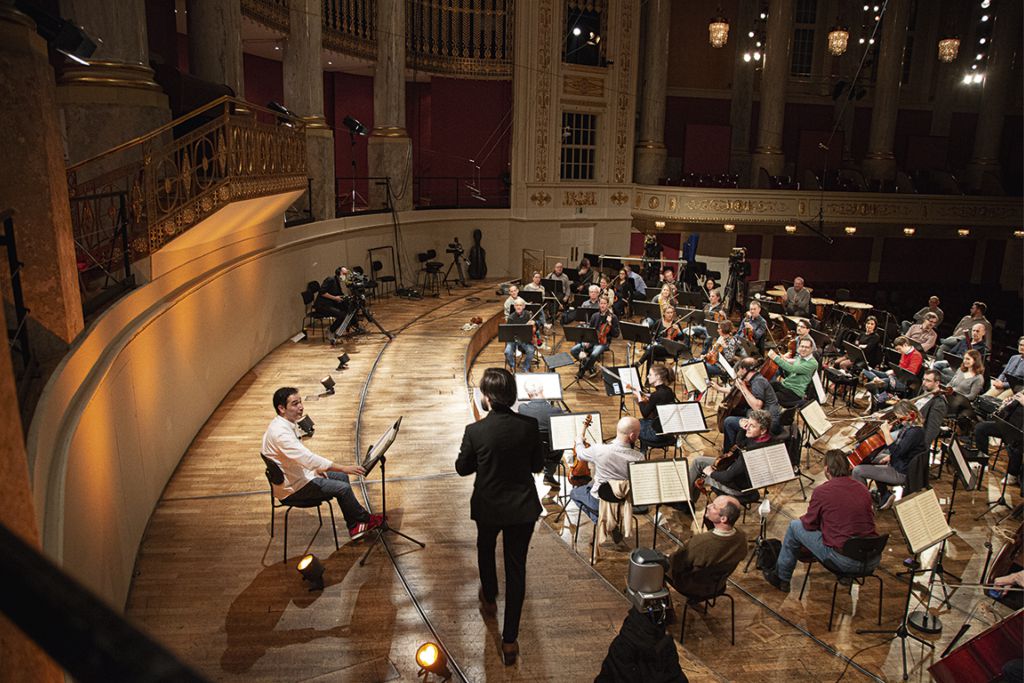
Activities in small groups between the phases of work—first with piano accompanists, then with the orchestra—as well as an extensive late-evening final discussion rounded out this eventful day.
The feedback from the student participants was uniformly positive and enthusiastic. The students found it truly liberating to attend a master class despite the event bans and restrictions on activities outside the home. “I sensed a lot of positive energy and goodwill coming from the orchestra, both while conducting and afterwards when they gave us their feedback,” reports one participant. Another comments: “Being able to conduct the Vienna Symphony as a student is, first and foremost, a luxury.” And a third participating student adds: “Our studies have given us a good foundation that helped us dig deep into the music today together with the maestro and benefit from his rich store of experience.”
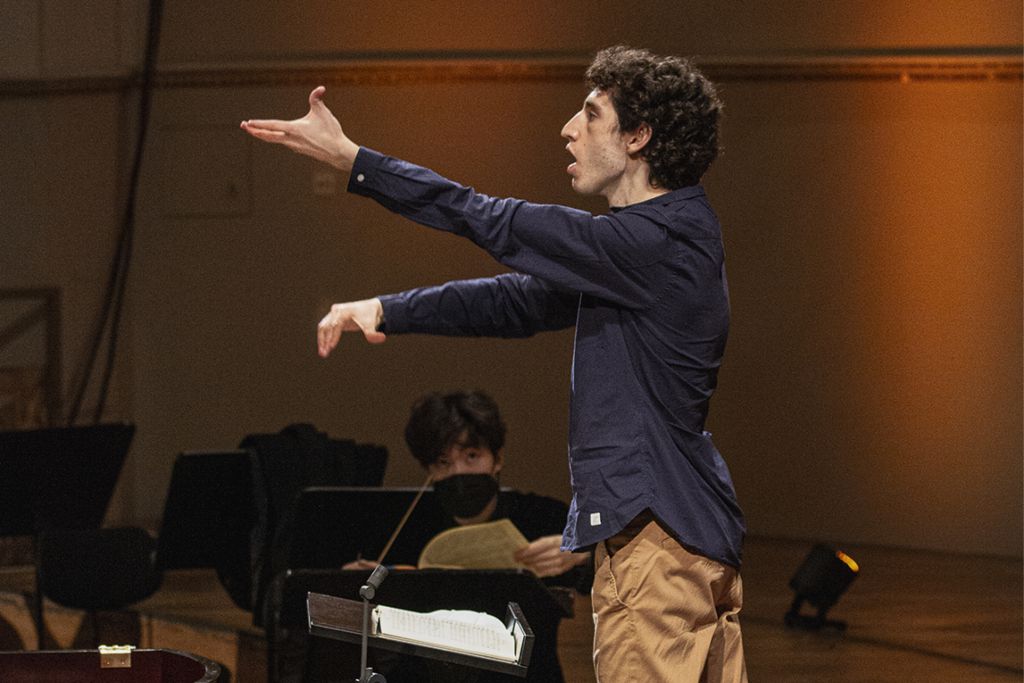
The initiator and leader of this master class, Andrés Orozco-Estrada, was likewise quite pleased: “All of the students presented themselves and their personalities quite well. And you could see it in how the orchestra reacted, too. All of the orchestral musicians played with enthusiasm, which was a really nice and motivating kind of feedback for the students and an inspiration for them to keep up their good work. I really hope that another such opportunity will arise—and in view of this successful experience, I’d like to find a way to offer mdw students further master classes so that even more of them can benefit. There are lots of different ways to be happy, but one of the greatest is when you’re able to share something with someone else—which is exactly what happened here. And for that, I’m very grateful.”
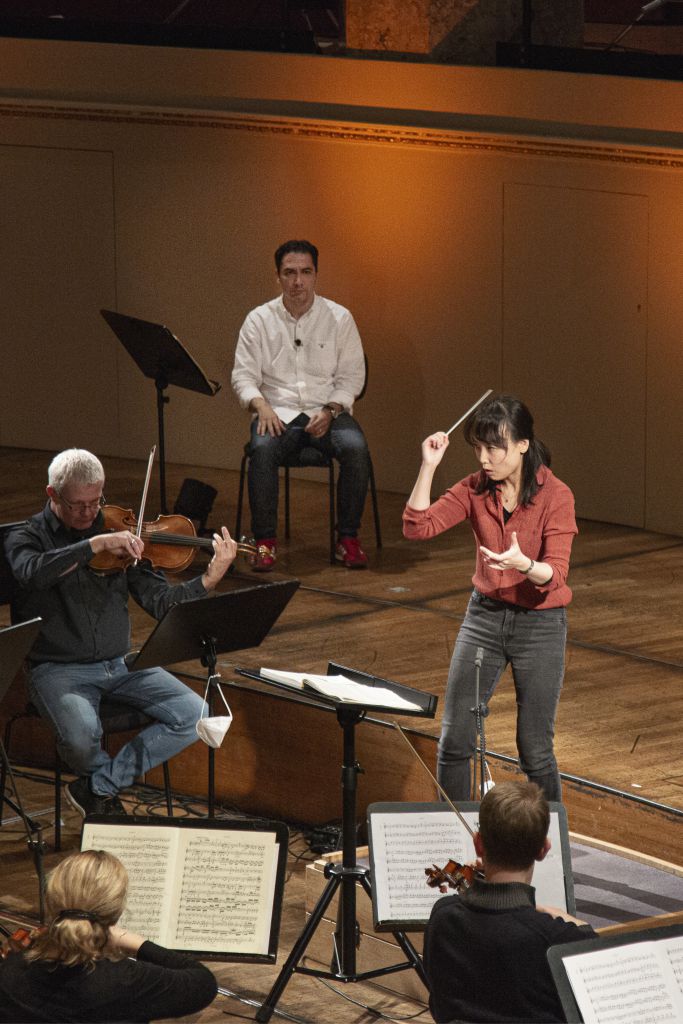
A short documentation of this master class is here available:

